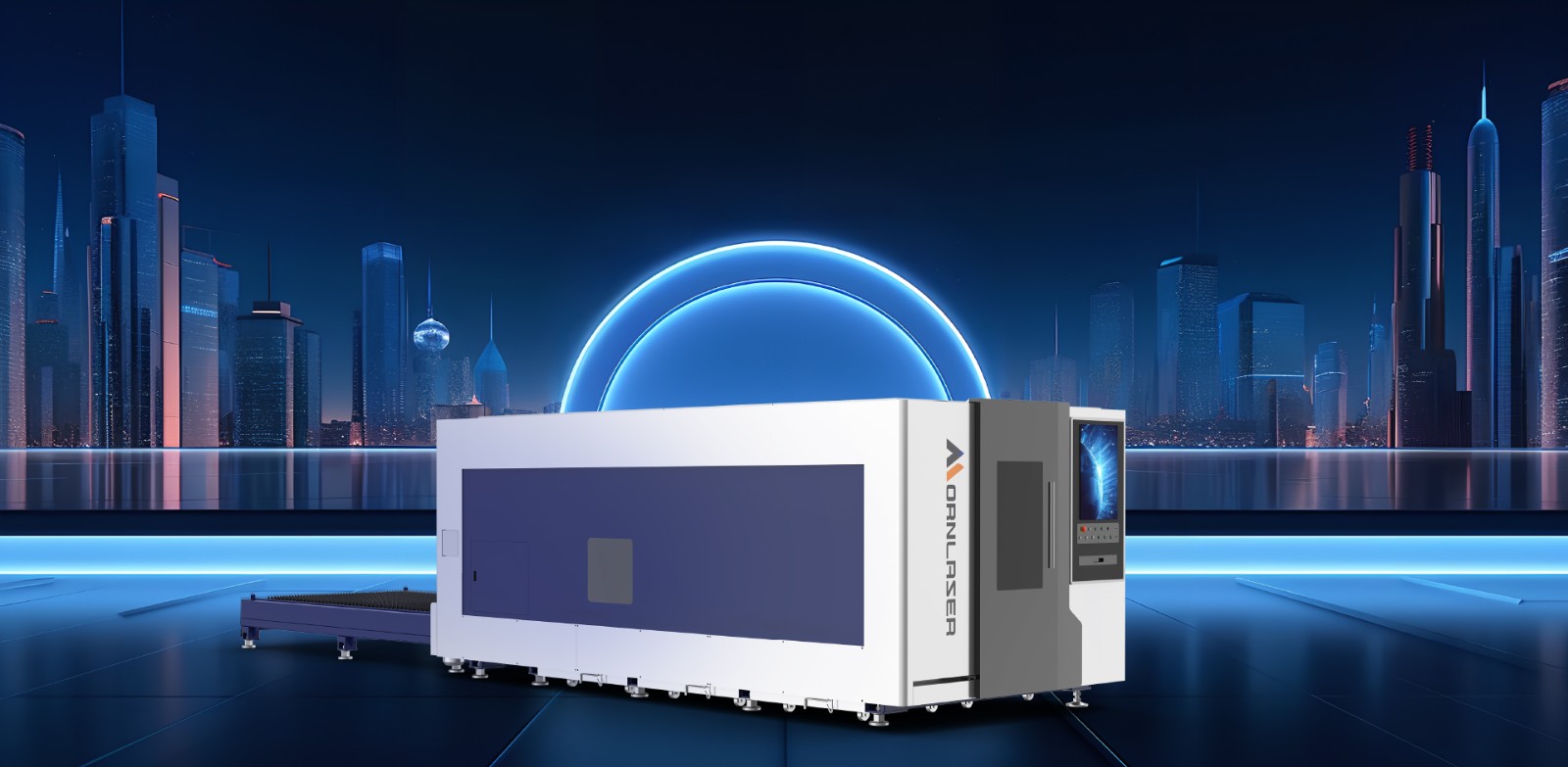-
Product
-
Fiber laser cutting machine
-
Profile Steel/ H-Beam Laser Cutter
high efficiency | high-performance | high quality -
Full Cover Fiber Laser Cutting Machine
supreme configuration | high precision | safe & pollution-free -
Sheet fiber laser cutting machine
tailor-made machine | efficiency boost -
Fiber Laser Bevel Cutting Machine
one-shot bevel | efficiency boost | streamlined process -
High precision fiber laser cutting machine
High precision | small footprint | fully enclosed -
Four-chuck Tube Cutting Lasers
truly zero-tailing | low cost per part | auto loader -
Three-chuck Tube Laser Cutting Machine
top production output | low cost per part | extremely short tailing -
Two-chuck Tube Laser Cutting Machine
top production output | low cost per part | extremely short tailing -
Full Enclosed Fiber Laser Cutting Machine
Integrated design saves installation time and shipping costs. - flexible processing | continuous cutting | efficient production
-
Fully Automatic Loading & Unloading Laser Cutting Production Line
intelligent production | optimizing factory space | reduce labor costs -
Sheet and Tube Fiber Laser Cutting Machine
supreme cost-effectiveness | dual-use laser | space-saving
-
-
Fiber laser welding machine
-
Air-cooled Portable Laser Welding Machine
more flexibility | easy to use | cost effective -
Automatic laser welding machine
fine welding seam | boosted efficiency -
Integrated fiber laser welding machine
instant welding | easy to operate & move -
Handheld fiber laser welding machine
long distance welding | multi-welding modes
-
- Fiber laser cleaning machine
- Bending Machine
-
Fiber laser cutting machine
- Solutions
- Why Morn Laser
- Price
- Contact
- VR
Menu
X- home
-
Product >
-
What to Look for When Buying a Used Fiber Laser Machine
2024-11-20Introduction
Purchasing a used fiber laser machine can significantly reduce costs, but it also comes with certain risks. To ensure that you acquire a device that is both economical and reliable, this article will detail key factors to consider when buying a used fiber laser machine.

Key Considerations
Equipment Condition Assessment
Visual Inspection: Carefully examine the exterior of the machine for any visible damage or wear.
Internal Inspection: Request photos or videos of internal components from the seller, particularly critical parts such as the laser source, optical elements, and cooling system.
Test Run: If possible, personally operate the machine to test its performance and stability.
Maintenance History and Records
Repair Records: Ask the seller for detailed repair records to understand the maintenance history and any known issues.
Operating Hours: Confirm the total operating hours of the machine. Devices with extensive use may require more maintenance.
Maintenance Status: Inquire about regular maintenance practices and review maintenance records to assess the overall condition of the machine.
Technical Support and Service
Warranty: Ask the seller if a warranty is provided and review the specific terms and duration of the warranty.
After-Sales Service: Understand whether the seller offers technical support and after-sales services, including repairs, training, and spare parts supply.
Manufacturer Support: If the machine is still under the manufacturer's warranty, confirm whether you can continue to receive support and services from the manufacturer.
Price and Value for Money
Market Price: Research the market prices for similar equipment to ensure that you are paying a fair price.
Cost-Effectiveness: Consider the machine's performance, condition, and price to ensure you get the best value for your money.
Additional Costs: Ask about any additional costs, such as transportation, installation, and commissioning fees.
Compliance and Certification
Safety Certification: Ensure that the machine meets local safety and compliance standards, which are crucial for industrial equipment.
Documentation: Request all relevant certificates and documents from the seller, including operation manuals, repair guides, and certificates of conformity.
Transportation and Installation
Transport Method: Confirm the transportation method and associated costs to ensure safe delivery.
Installation and Commissioning: Understand the installation and commissioning process to ensure you have the necessary skills and resources to complete these steps.
mornlaser: Your Comprehensive Solution Provider
mornlaser is a high-tech enterprise specializing in R&D, production, sales, and service, providing comprehensive smart manufacturing solutions. As a one-stop industrial laser cutting machine solution provider, we leverage cutting-edge production technology and reliable service to become the preferred laser brand for tens of thousands of customers worldwide. We commit to lifetime responsibility for our products and offer comprehensive technical support and after-sales service.
Conclusion
When purchasing a used fiber laser machine, it is essential to conduct a thorough evaluation and consideration to ensure you acquire a high-quality and reliable device. By focusing on equipment condition, maintenance history, technical support, price and value, compliance, and transportation and installation, you can minimize risks and achieve a cost-effective purchase. If you need further assistance, please contact mornlaser, and we will be happy to serve you.
This article provides a detailed overview of key factors to consider when purchasing a used fiber laser machine, helping you better evaluate and select the right equipment. We hope this information is helpful to you.
- Office Address:
- 17F, Building 5, Qisheng Mansion High-Tech Zone, Jinan, Shandong 250101, China
- Email: info@mornlaser.com
- Mobile/WhatsApp/WeChat: +86 151 6916 6350
CONTACT USCopyright © 2008-2022 Morn Laser All Rights Reserved.![]() Get a Quote
Get a Quote
![]() Get a Quote
Get a Quote
Cookies
We use cookies to improve our services and remember your choice for future visits. By clicking "Accept cookies", you consent to the use of cookies on this website.
Read our Privacy Policy
Get a Quote x
![]()







